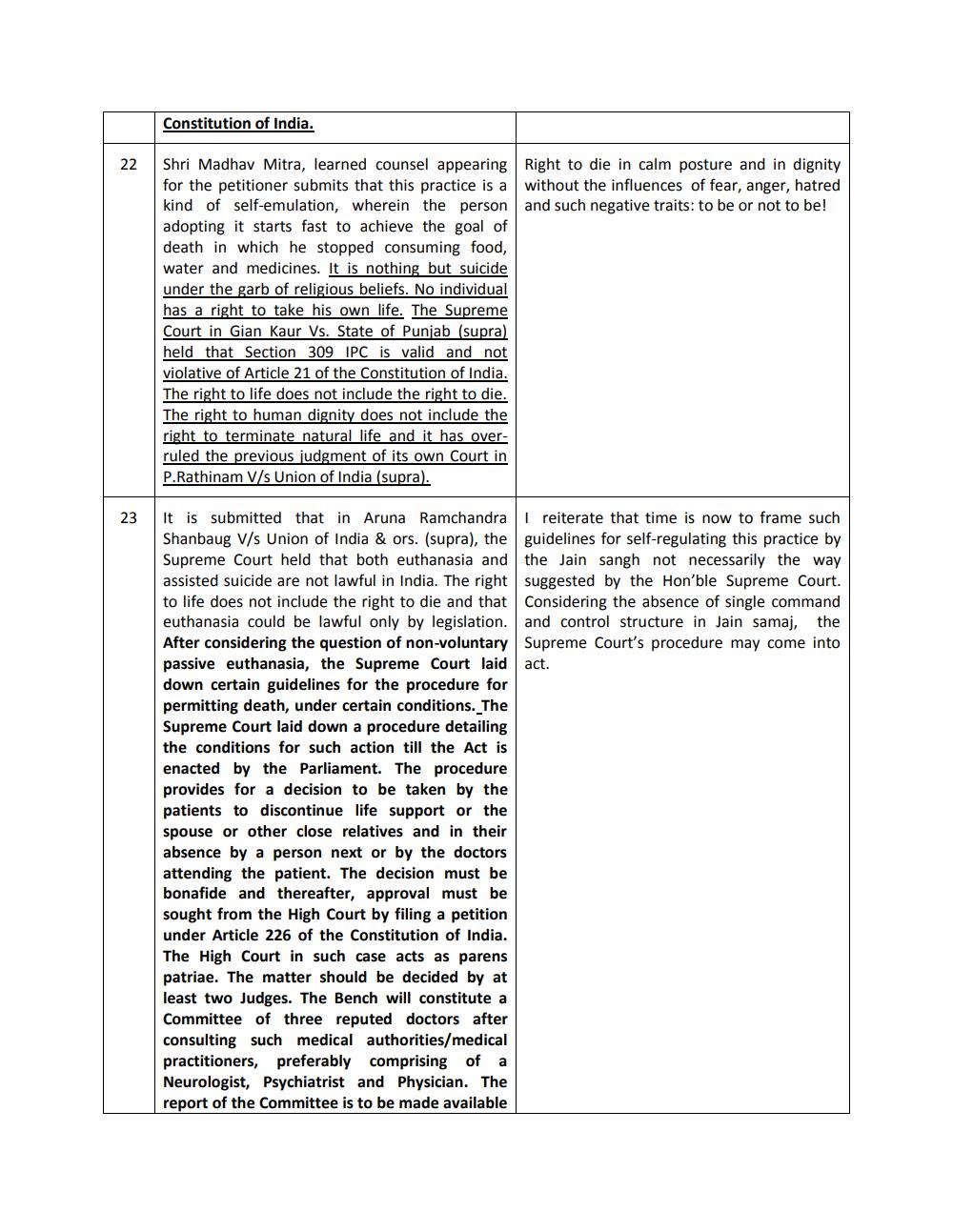________________
Constitution of India.
Shri Madhav Mitra, learned counsel appearing Right to die in calm posture and in dignity for the petitioner submits that this practice is a without the influences of fear, anger, hatred kind of self-emulation, wherein the person and such negative traits: to be or not to be! adopting it starts fast to achieve the goal of death in which he stopped consuming food, water and medicines. It is nothing but suicide under the garb of religious beliefs. No individual has a right to take his own life. The Supreme Court in Gian Kaur Vs. State of Punjab (supra) held that Section 309 IPC is valid and not violative of Article 21 of the Constitution of India. The right to life does not include the right to die. The right to human dignity does not include the right to terminate natural life and it has overruled the previous judgment of its own Court in P.Rathinam V/s Union of India (supra).
It is submitted that in Aruna Ramchandra | reiterate that time is now to frame such Shanbaug V/s Union of India & ors. (supra), the guidelines for self-regulating this practice by Supreme Court held that both euthanasia and the Jain sangh not necessarily the way assisted suicide are not lawful in India. The right suggested by the Hon'ble Supreme Court. to life does not include the right to die and that considering the absence of single command euthanasia could be lawful only by legislation. and control structure in Jain samaj, the After considering the question of non-voluntary | Supreme Court's procedure may come into passive euthanasia, the Supreme Court laid act. down certain guidelines for the procedure for permitting death, under certain conditions. The Supreme Court laid down a procedure detailing the conditions for such action till the Act is enacted by the Parliament. The procedure provides for a decision to be taken by the patients to discontinue life support or the spouse or other close relatives and in their absence by a person next or by the doctors attending the patient. The decision must be bonafide and thereafter, approval must be sought from the High Court by filing a petition under Article 226 of the Constitution of India. The High Court in such case acts as parens patriae. The matter should be decided by at least two Judges. The Bench will constitute a Committee of three reputed doctors after consulting such medical authorities/medical practitioners, preferably comprising of a Neurologist, Psychiatrist and Physician. The report of the Committee is to be made available




